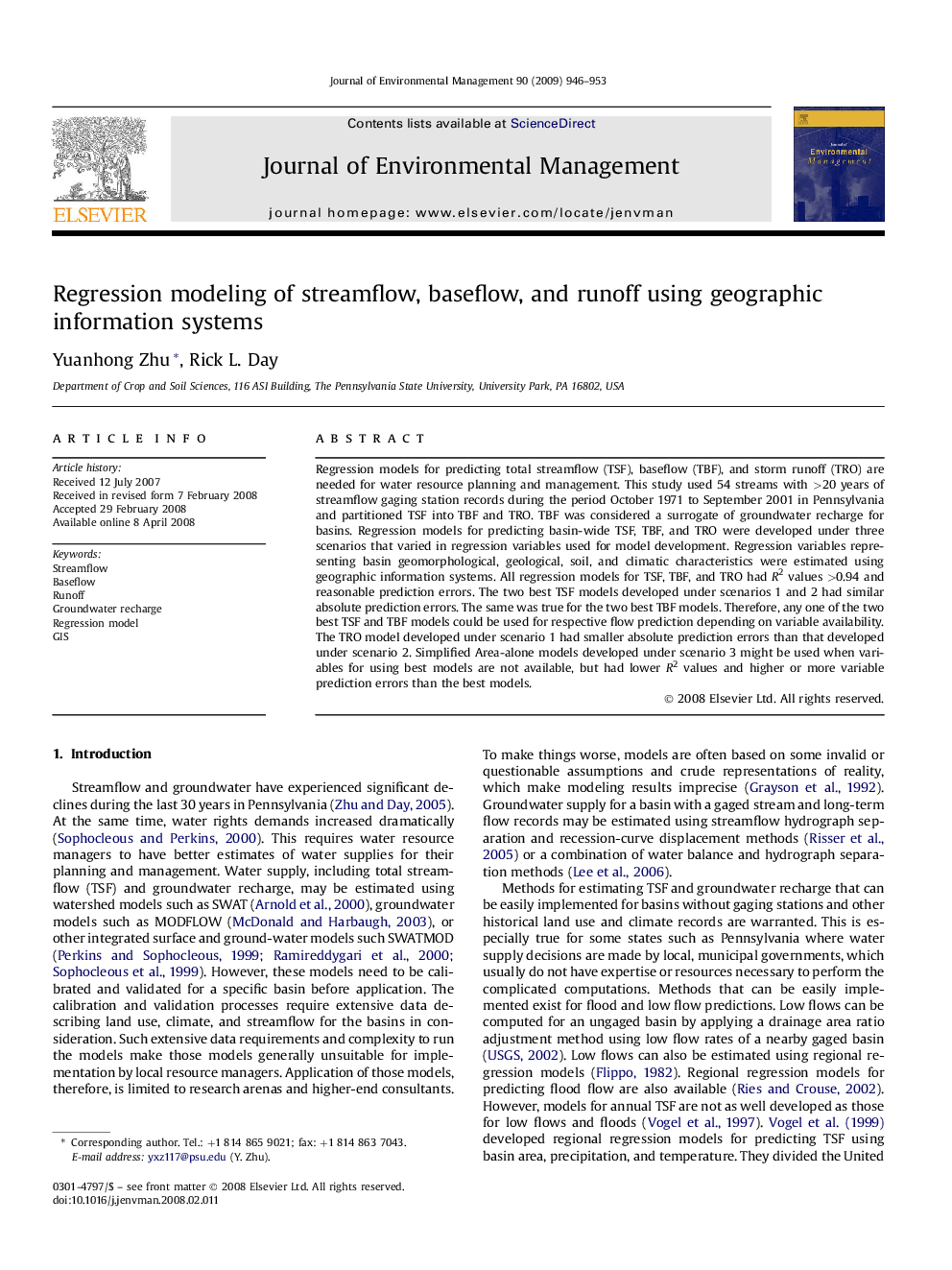| Article ID | Journal | Published Year | Pages | File Type |
|---|---|---|---|---|
| 1058434 | Journal of Environmental Management | 2009 | 8 Pages |
Regression models for predicting total streamflow (TSF), baseflow (TBF), and storm runoff (TRO) are needed for water resource planning and management. This study used 54 streams with >20 years of streamflow gaging station records during the period October 1971 to September 2001 in Pennsylvania and partitioned TSF into TBF and TRO. TBF was considered a surrogate of groundwater recharge for basins. Regression models for predicting basin-wide TSF, TBF, and TRO were developed under three scenarios that varied in regression variables used for model development. Regression variables representing basin geomorphological, geological, soil, and climatic characteristics were estimated using geographic information systems. All regression models for TSF, TBF, and TRO had R2 values >0.94 and reasonable prediction errors. The two best TSF models developed under scenarios 1 and 2 had similar absolute prediction errors. The same was true for the two best TBF models. Therefore, any one of the two best TSF and TBF models could be used for respective flow prediction depending on variable availability. The TRO model developed under scenario 1 had smaller absolute prediction errors than that developed under scenario 2. Simplified Area-alone models developed under scenario 3 might be used when variables for using best models are not available, but had lower R2 values and higher or more variable prediction errors than the best models.
